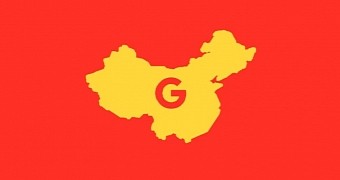After nine years of censorship, Chinese users were able to access Google services, even if for a brief moment, as the site and all of its domains were re-banned less than two hours later.
On the night between Sunday and Monday, between 11:30 PM and 01:15 AM, users in mainland China were able to access Google search, Gmail, YouTube, and other Google services, for the first time in nine years.
The news spread like wildfire on Chinese social networks, and many users were quick to jump to the wrong conclusion that their government decided to allow free speech in their country.
As the South China Morning Star later reported, the brief Great Firewall workaround for Google services had nothing to do with politics, but a was a mere technicality, with which China's Great Firewall administrators quickly dealt as soon as they discovered it.
Google added a few new servers, Chinese admins quickly banned them
The reason Google services were accessible in China was the fact that the search giant added a series of new servers, with new IPs, to its local data centers, which also serve other users in South East Asia.
New IPs were added for Google's local domains catering to users in Vietnam, India, Japan, Singapore, and Pakistan, among others.
Since these new IPs weren't on China's Great Firewall blacklist just yet, Chinese users had a quick glimpse of what Baidu has been trying to mimic all these years.
All in all, Chinese users had 105 minutes of free and untethered Internet searches at their fingertips, but as people said on Weibo or WeChat, most of them spent it watching bloopers and cat videos on YouTube. In a way, Chinese users aren't that different from the rest of us.
What this shows is that China's main censorship tool is mainly a reactive tool, powered by actual humans looking at the content, and not by an AI system that works on its own.

 14 DAY TRIAL //
14 DAY TRIAL //